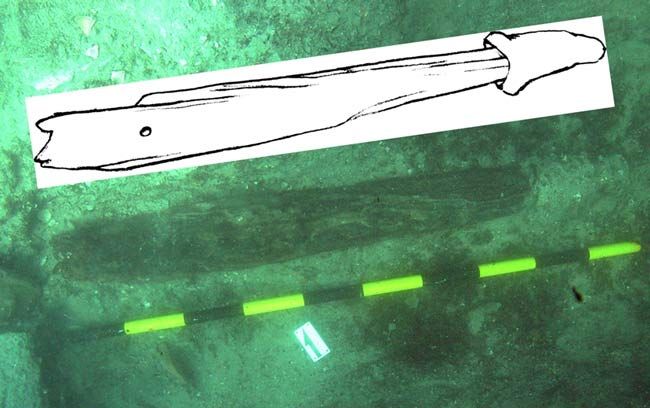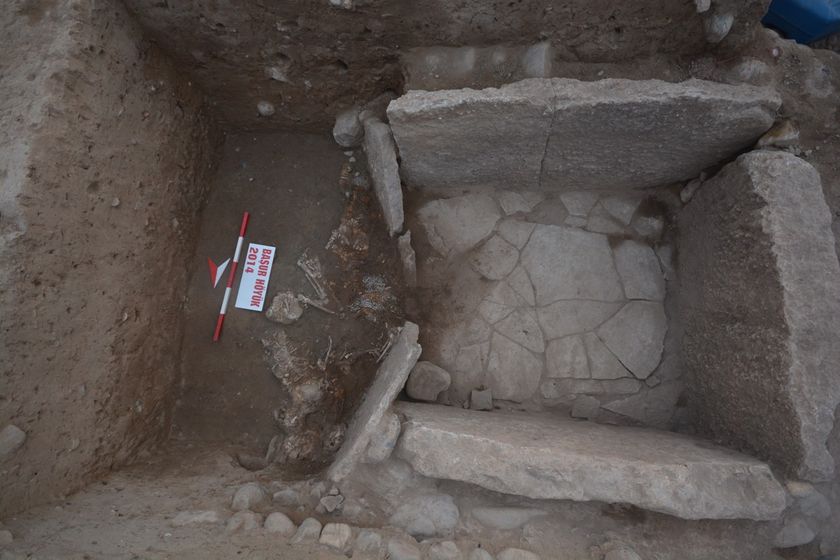Divers Discover Oldest Wooden Anchor

The world's oldest wooden anchor has been discovered embedded in muck on the sea floor of an ancient Turkish port off the Aegean Sea. Dating from the end of the 7th century B.C., the anchor likely detached from a ship traveling to or from the Greek colony of Klazomenai, near the modern Turkish port city of Urla. Part of the port slid into the sea during a natural disaster soon thereafter, the researchers said, burying the anchor in 5 feet of sediment. "Urla is a very ancient site that has been excavated before," said study leader Michal Artzy, of the University of Haifa's Institute for Maritime Studies in Israel. "There was never a question that there was a natural disaster here at some point, probably an earthquake." Underwater ruins found at Urla in the past few years—including "a large sunken area that shows human habitation," said Artzy—revealed that the undocumented disaster sunk part of Klazomenai sometime in the 6th century B.C. "On the sea floor, we found a layer of what we call Poseidon grass [like seaweed], and beneath that it was covered with ceramics with goat motifs from that time," she told LiveScience. "It is all preserved in a layer, and you can see that the anchor is part of that period too." Just a portion of the original anchor remains, Artzy said. "The anchor broke when [the sailors] tried to pull it up, but the important part remained in the sea floor—the part with metal remains," she said. "It tells us that this is an Aegean-type anchor, though it could have come from anywhere in the region."
- Top 10 Ancient Capitals
- Remains of World’s Oldest Ships Found in Egypt
- Why Ancient Greeks are Always Nude
Sign up for the Live Science daily newsletter now
Get the world’s most fascinating discoveries delivered straight to your inbox.











